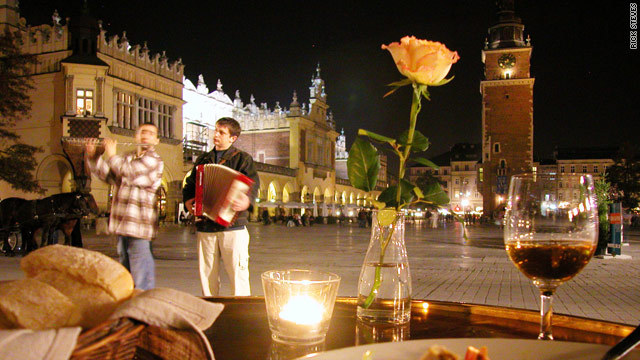
I’ve always been fascinated by royals and genealogy. I’ve giggled gleefully at the millions of descendants from one Irish high king named Niall of the Nine Hostages, chuckled at the amusing antics of Infanta Leonor of Spain and smiled at the moving humanitarian efforts of Prince William of the United Kingdom. But no royal action gave me more pleasure than one that took place more than five hundred years ago.
When reading about the historical gems of Krakow, Poland, I noticed that the article mentioned the following, “back in the 1930s, a quarter of Krakow’s population was Jewish.†Of course, that was before the Holocaust, but I was struck by the acceptance of the Polish gentile community of the Jews even before that time. The article went on to mention that the neighborhood was “named for the 14th-century king who welcomed the Jews when other nations were deporting them.â€
Naturally, my investigative instincts kicked in and I began frantically Googling to find out who this mystery man was. Named Casimir III, dubbed “the Great†by subsequent generations, this ruler proved to be rather benevolent towards the Jews. Casimir likely treated the Jews well so they would become the merchant tax-collectors and exonerate the king from blame regarding taxation levels, suggests Joanna Rohozinska. Even still, he gave them a good deal of autonomy and protection in an era when Jews were being accused left and right of stealing Christian babies and causing the plague. A place like Poland was a veritable sanctuary of human rights compared to what Jews suffered in Western Europe.
Part of Casimir’s benevolence may have come from his alleged mistress, a Polish Jew named Esther. Their children together were a mishmash of religious inheritance. Their sons were raised Christian, likely because, as civil servants for their father in the future, they would have to be more acceptable to the Polish public. Their daughter, in contrast, was raised Jewish, probably because her social status was not as important. The fact that Casimir even allowed one of his children to be raised Jewish, though he did not allow his other children to be raised in the faith, is a step toward a more accepting attitude.
Unlike other kings, Casimir did not seem to believe the silly rumors that Jews stole Christian babies for satanic rites. He supported their Judaism and does not seem to have made efforts to convert them, outlawing the kidnapping of Jewish babies to be baptized and the desecration of Jewish cemeteries. His respect for the Jewish community was mutual: the Jews gave him monetary loans in exchange for being allowed to thrive.
In a time where so many others of their faith were being faced with discrimination, the Jews of Poland were treated with relative respect. Casimir may not have been any saint, but he treated the Jews with far more humanity than his western European counterparts. He was ahead of his time in terms of human rights.
There are Casimirs in today’s world, too. Even if there are others that are anti-Semitic, there are those that are not. Unfortunately, though, the anti-Semitic ones aren’t going to go away. In a world today when Jews are still denigrated, though, let’s be grateful for what we have and work towards achieving even more respect. Whether that means cooperating with those who might be hostile or strengthening relationships with our existing allies, let’s pay tribute to those that went before us and try to preserve the future of the Jewish people.
